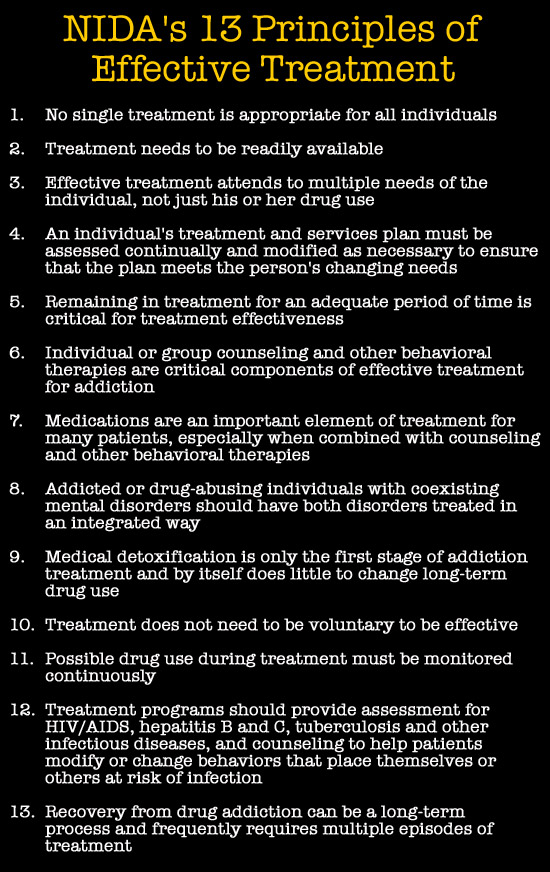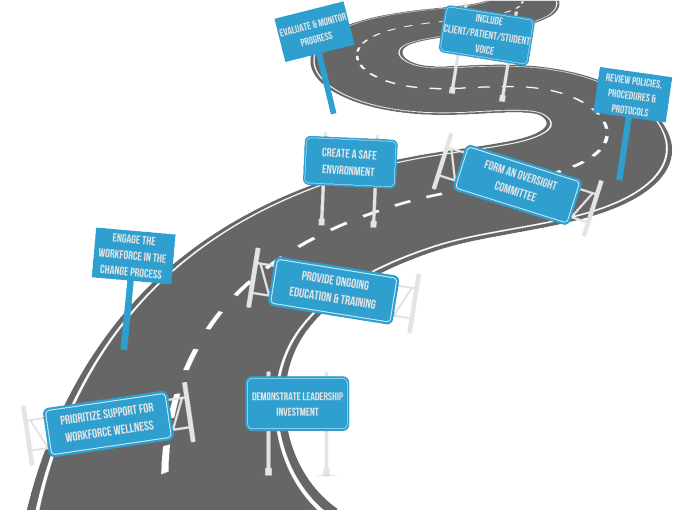Table of ContentsGet This Report on Addiction Treatment - Options For Addiction Recovery ...The Single Strategy To Use For Addiction Rehab Center For Alcohol & Drugs - Mclean HospitalSome Known Facts About Drug Addiction Management And Treatment - Cleveland Clinic.
With advances in research study, treatment practice has improved, causing restored hope and self-sufficiency among chemically dependent persons, and to more powerful families that can provide the love and support vital for recovery. Enhancement in treatment has actually likewise minimized the huge financial toll this disease takes on the country. New York City State has responded to the requirements of its residents for chemical reliance treatment services with a thorough system of care.
Treatment programs, educated health professionals, regional Councils on Alcoholism and Drug Addictions, Worker Help Programs, and many self-help groups can help people discover treatment. Cooperations between treatment firms and criminal justice, mental health, welfare, and kid welfare companies likewise identify and refer persons to necessary treatment. For people needing help, the OASAS toll-free info and recommendation line will help with recommendations.
Adapted from "Concepts of Drug Addiction Treatment" National Institute on Drug Abuse (NIDA) NIH Publication No. 00-4180 A few minor, adjustments were made to the language contained in the initial 13 principles stated by NIDA. The NIDA publication was composed specifically for - and was limited to - drug dependency treatment.
Therefore, the most considerable modification to the 13 principles is to widen them to be suitable for all chemical reliance treatment. what is treatment for addiction. https://postheaven.net/machilxgec/b-table-of-contents-b-a-wbgy In addition, the term "client," has actually often been changed to "private" to show New york city's view of the chemical reliance client as an active participant and consumer or customer of services.
Due to the fact that people who are addicted might be unpredictable about going into treatment, making the most of opportunities when they are ready for treatment is important. Possible treatment candidates can be lost if treatment is not right away readily available or is not readily available. To be efficient, treatment must deal with the person's alcohol and substance use and any associated medical, mental, social, occupation, and legal problems.
In addition to counseling or psychiatric therapy, an individual sometimes may need medication, other medical services, household treatment, parenting direction, occupation rehabilitation, and social and legal services. It is important that the treatment method be appropriate to the person's age, gender, ethnic culture, and culture. The proper duration for a specific depends on his/her problems and requirements.

Getting The What Is Addiction? - Healthline To Work
After this limit is reached, additional treatment can produce further progress toward healing. Since people frequently leave treatment too soon, programs need to consist of methods to engage and keep individuals in treatment. In treatment, people address problems of motivation, construct abilities to withstand alcohol and substance usage, change alcohol and substance-using activities with useful and satisfying non-using activities, and enhance analytical capabilities.
Methadone and levo-alpha-acetyl-methadol (LAAM) are very efficient in helping individuals addicted to heroin or other opiates support their lives and reduce their illicit substance abuse. Naltrexone is likewise an efficient medication for some opiate addicts and some individuals with co-occurring alcoholism. For persons addicted to nicotine, a nicotine replacement item (such as spots or gum) or an oral medication (such as bupropion) can be an efficient element of treatment.
Since addicting disorders and psychological disorders typically happen in the exact same individual, individuals providing for either condition should be examined and treated for the co-occurrence of the other type of disorder. Medical detoxing securely manages the severe physical symptoms of withdrawal connected with stopping drug usage. how to open an addiction treatment center. While detoxification alone is hardly ever enough to assist addicted persons accomplish long-term abstinence, for some individuals it is a highly shown precursor to reliable alcohol and drug addiction treatment.
Sanctions or temptations in the household, work setting, or criminal justice system can increase substantially both treatment entry and retention rates and the success of treatment interventions. Lapses to alcohol and/or substance abuse can occur during treatment. The unbiased tracking of a person's alcohol and drug usage during treatment, such as through urinalysis or other tests, can help the individual withstand advises to use.
Feedback to persons who check positive for alcohol or illicit substance abuse is an important element of tracking. Therapy can assist individuals prevent high-risk habits. Therapy likewise can help individuals who are already contaminated manage their disease. Similar to other persistent illnesses, regressions to drug use can happen throughout or after successful treatment episodes.
An individual with a dependency utilizes a substance, or engages in a habits, for which the fulfilling results provide an engaging reward to repeat the activity, regardless of destructive consequences. Addiction may include the use of substances such as alcohol, inhalants, opioids, drug, and nicotine, or habits such as gaming. There is proof that addicting behaviors share crucial neurobiological functions: They extremely include brain paths of benefit and support, which include the neurotransmitter dopamine.
Drug Addiction Management And Treatment - Cleveland Clinic Things To Know Before You Buy
It is important to understand that such brain modifications are reversible after the substance use or behavior is stopped. Both compound use disorders and betting behaviors have an increased possibility of being accompanied by psychological health conditions such as depression and anxiety, or other pre-existing issues. Substance use and gambling disorders not just engage the same brain systems, they react to much of the very same treatment techniques.
They are identified by impaired control over usage; social impairment, involving the disturbance of daily activities and relationships; and craving. Continuing usage is normally harmful to relationships along with to responsibilities at work or school. Another differentiating feature of addictions is that people continue to pursue the activity in spite of the physical or psychological damage it sustains, even if it the damage is intensified by repeated usage.
Because addiction affects the brain's executive functions, focused in the prefrontal cortex, individuals who develop a dependency may not know that their habits is triggering issues for themselves and others. With time, pursuit of the satisfying impacts of the compound or habits might dominate a person's activities. All addictions have the capability to induce a sense of hopelessness and feelings of failure, as well as pity and regret, but research files that recovery is the rule instead of the exception (how to make a treatment plan for addiction).

People can accomplish better physical, psychological, and social working on their ownso-called natural healing. Others take advantage of the assistance of neighborhood or peer-based networks. And still others go with clinical-based recovery through the services of credentialed specialists. The road to healing is hardly ever straight: Relapse, or reoccurrence of substance use, is commonbut definitely not the end of the roadway.
Dependency Healing Provider at University Hospitals, developed in 2005, is a State-Certified, Joint Commission Accredited addiction treatment program that uses a wide variety of outpatient addiction treatment services to assist patients 18 years and older, and their households, having a hard time with compound usage and other addictive habits. The Addiction Healing Provider group views dependency as a brain illness impacting physical, psychological, psychosocial, and spiritual performance.
Our group of clinicians includes: Addiction Psychiatrists Psychologists Advanced Practice and Registered Nurses Independently Accredited Counselors and Social Workers Certified Chemical Reliance Counselors All of our personnel have several years of experience focusing on the treatment of dependency, drug abuse and mental health disorders. Our outcome measures and patient satisfaction studies consistently exceed industry standards.